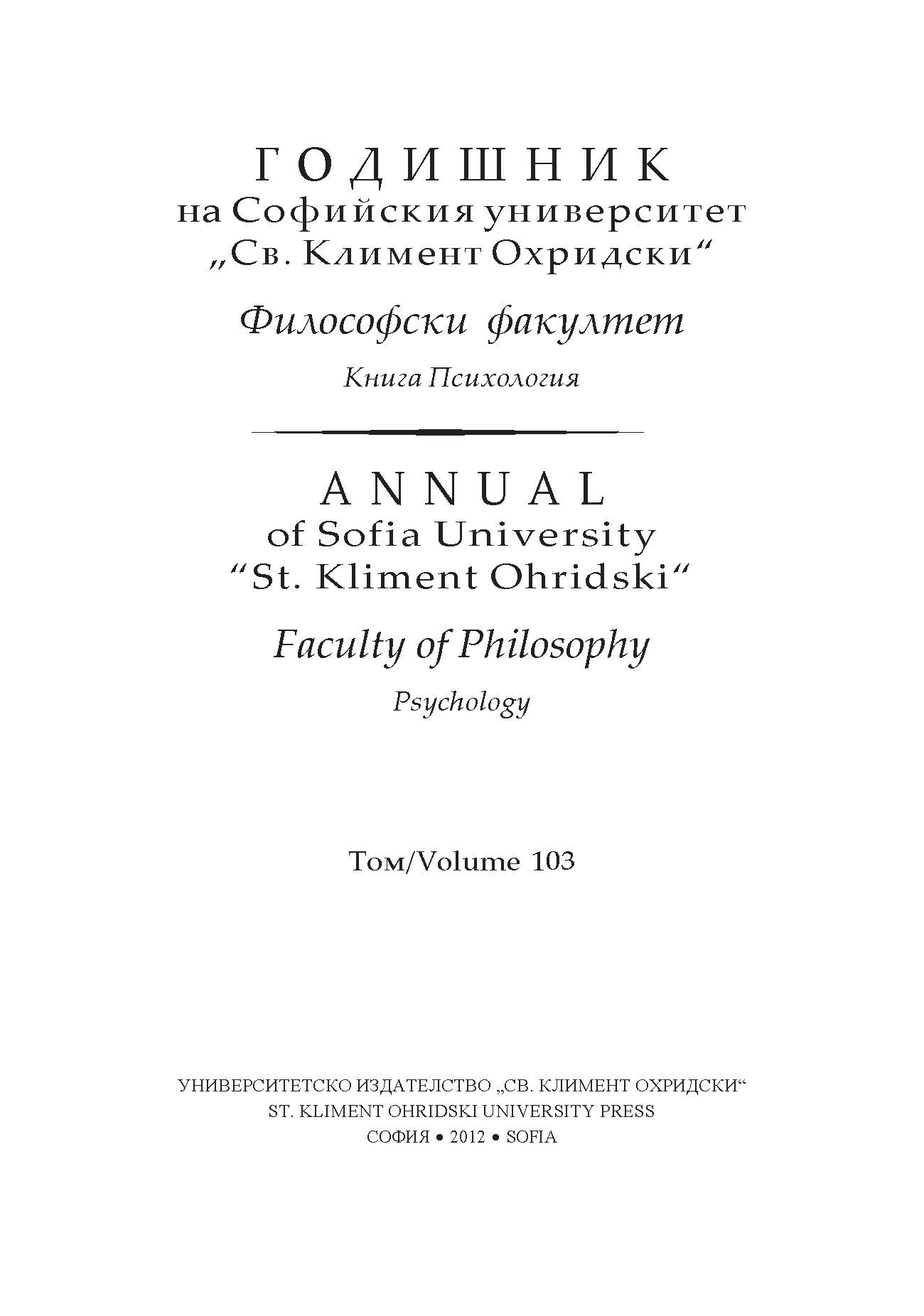Предпочитания на поколението, навлизащо на пазара на труда, към характеристиките на работата и организационните стимули
Preferences of the generation entering the labor market towards job characteristics and organizational stimuli
Author(s): Maria Karaivanova, Irina ZinovievaSubject(s): Social Sciences, Psychology, Personality Psychology, Organizational Psychology
Published by: Софийски университет »Св. Климент Охридски«
Keywords: preferences; labor market; organizational stimuli
Summary/Abstract: The generation entering the labor market attracts growing attention by both scholars of organizational behaviour and human resource management experts. The present study has exploratory nature since these matters are relatives less studied in Europe. We investigated the generation entering the labor market as compared to the older generation on a number of work attitudes and preferences. The focus of the present article is on the preferences towards three groups of organizational characteristics. Preferences concerning job characteristics cover autonomy in doing the work, task variety, task significance, work time flexibility, and social contacts in work settings. The perception of organizational stimuli is focused on learning and professional skill development, on the one hand, and promotion opportunities, on the other. The preferences about the work outcomes concern overall job satisfaction, readiness to leave the organization, and work-life balance. The results show marked differences in the preferences between the two generations. While both generations like autonomy, work time flexibility, and social contacts in the organization, the young are more concerned with the work-life balance and are less inclined to leave their current employer. Compared to the older generation, they are less interested in learning and professional skill development and even less in opportunities for promotion. In discussing the results, we draw attention to the implications of these results for human resource management and their translation into organizational policies.
Journal: Годишник на Софийския университет „Св. Климент Охридски“. Философски факултет. Психология
- Issue Year: 103/2012
- Issue No: 1
- Page Range: 27-42
- Page Count: 16
- Language: Bulgarian

